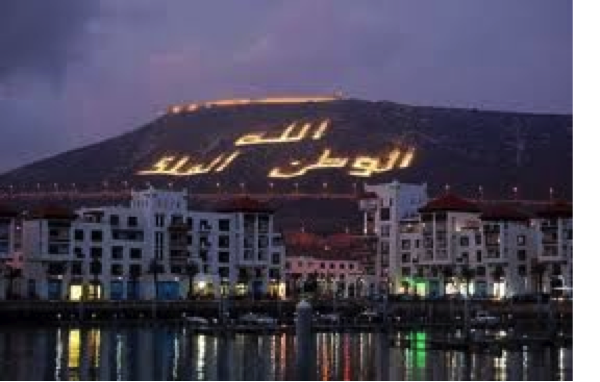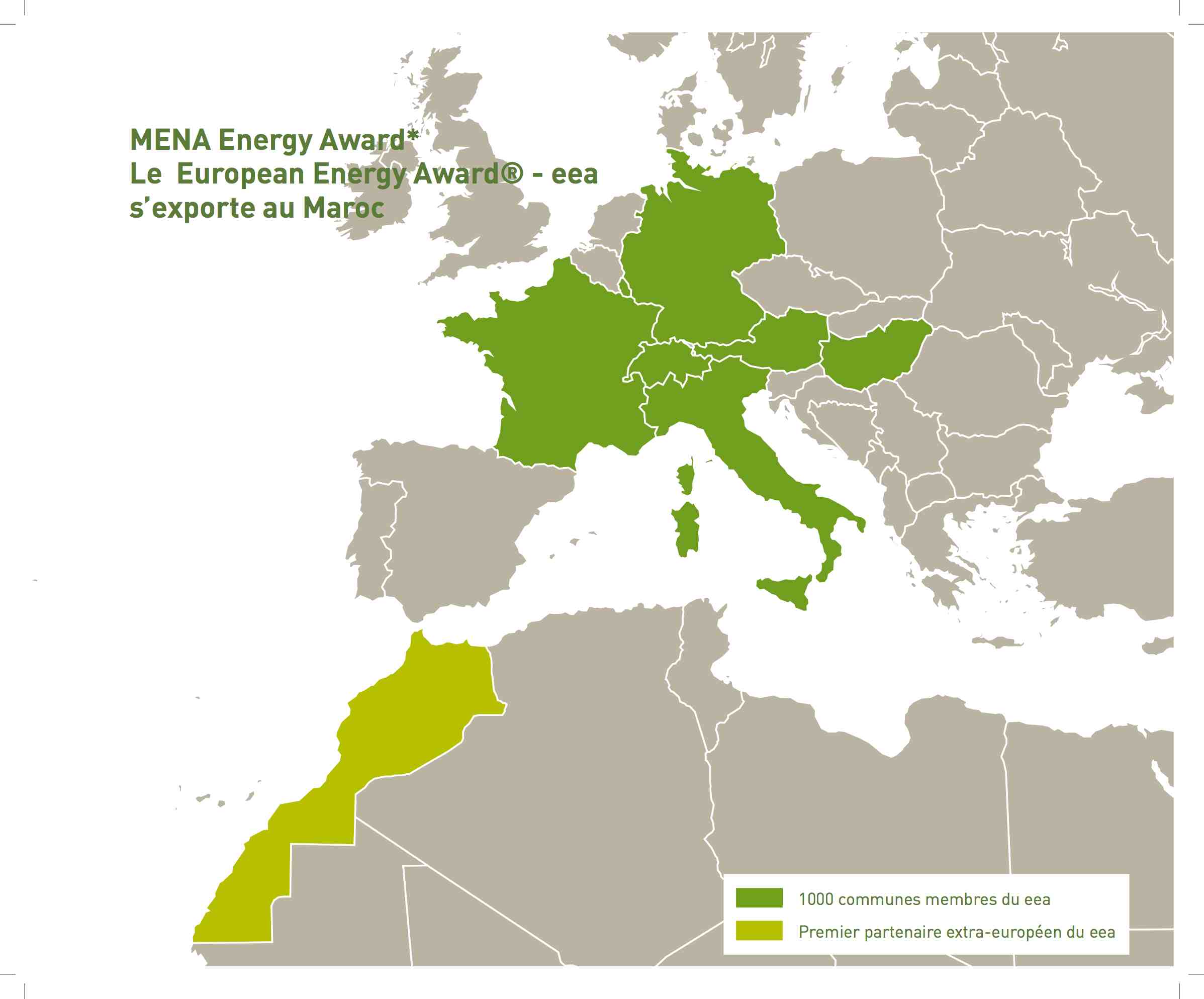Jiha Tinou Territorial Approach
Tinou - Territorial Strategy for Sustainable Energy Development
Jiha Tinou ("my region" in Arabic and Amazigh), the territorial strategy of the AMEE in renewable energy and energy efficiency aims to encourage local initiatives, while promoting the implementation of the national energy strategy at the national level. territories and communities of the Kingdom. Through its strategic territorial approach, the AMEE is at the heart of the dynamics of Advanced Regionalization, launched by His Majesty King Mohamed VI that God assists, in November 2008.

Launched in 2012 and spread over 8 years, the Jiha Tinou strategy seeks to optimize the capacity of local actors to contribute, at their level, to Morocco's energy objectives by 2020, by encouraging energy management at the same time. at the local level, and by reinforcing the communal and regional capacity to valorise local resources in renewable energies. This is how Jiha Tinou places citizens and their local elected representatives at the heart of the dynamics of change, as strategic carriers and catalysts of territorial energy initiatives.
The Jiha Tinou 2020 strategy supports local stakeholders by providing local assistance and support throughout the planning cycle. This support is reflected in particular by:
- Support for local governance: support for local decision-makers and supervision of local steering structures, cf. "Energy teams;
Strengthening institutional and personal capacities, with the aim of supporting the implementation of municipal actions and eventually generating a local offer in continuing education, adapted to the needs of communities: - Access to information, awareness and orientation of the citizen: by supporting local communication strategies and actions, developing tools, creating networks and establishing "energy information spaces";
- Support for the implementation of investment projects, through the development of institutional-financial schemes enabling communities to invest in technologies that allow them to control the energy consumption of municipal buildings and infrastructure.

To facilitate and structure local energy planning, Jiha Tinou relies on a European-inspired methodological framework, the MENA Energy Award (MEA) MEA is a communal energy planning and certification tool, developed and applied for the first time as part of the Jiha Tinou Pilot Cycle (2012-2014), it facilitates integrated territorial energy planning, the development of governance models, and the implementation of concrete projects at the level of local authorities. Agadir, Chefchaouen and Oujda, three urban communes of different sizes and geographical positions, were selected following a call for applications.
These municipalities will be, alongside the three rural communes they have each sponsored, the first cities in North Africa to join the MENA Energy Award.
Support from multiple partners
The Amee is accompanied in the implementation of Jiha Tinou and the first pilot cycle MENA Energy Award by Swiss Cooperation (REPIC), the French Agency for Environment and Energy Management (ADEME), the Forum European Enery Award (EEA) and the Institute for Development, Environment and Energy (IDE-E). In addition to these strategic carriers, the AMEE has mobilized more than twenty national and international partners who provide strategic, technical and financial support for the implementation of Jiha Tinou and the pilot projects that are part of it.
MENA Energy Award
* The MENA Energy Award is a methodology, inspired by the European Energy Award, eea® currently used in 9 European countries, by more than 1000 municipalities, adapted to the Moroccan context. The MEA offers an arsenal of methodological tools relating to municipal energy planning and certification (see label mea®) of municipalities most committed to sustainable energy development. The management of the MENA Energy Award, and in particular its first application in North Africa, is provided by AMEE, in partnership with the German Cooperation for International Development (GIZ), the French Agency for the Environment and Energy Management (ADEME), the Swiss Cooperation (REPIC), the European Energy Award Forum and the Institute for Development, l Environment and Energy (IDE-E) which ensures coordination.
Pilot phase: Results and perspectives
At the territorial level, Jiha Tinou provided direct support to municipal teams and local public and private actors, in close consultation with strategic partners.
- Support for the creation of local energy governance structures, including the establishment and support of 3 Energy teams (composed of elected officials, managers and municipal technical staff), and support for the implementation - by these teams - a complete cycle of communal energy planning: an inventory of fixtures, the planning, management and implementation of priority projects, and the self-evaluation of local initiatives;
- Organizing and supporting the participation of municipal agents in 10 training courses and 20 technical workshops directly related to the implementation of priority actions; resulting in the training of 470 people, including 259 unique people;
- Support for the implementation of 17 demonstration projects through technical assistance (support for the development of institutional-financial, public and public-private models, technical assistance in setting up and implementing local actions, supervision of experts, writing specifications and methodological tools;
-The organization and co-organization of 8 conferences and seminars, including a major national conference on October 4, 2013 in Rabat; the participation in 7 panels and symposia, as well as the participation of the municipal representatives in the national debate of the General States of Energy Efficiency, which took place during the year 2013.

Cycle II (2015-2017) will have to build - both at the level of national governance and at the level of support for local processes - on the gains, experiences and lessons learned from the pilot phase. This phase aims to broaden the number of cities that commit to sustainable energy development, strengthen the national governance structure to optimize support for local actors, sustain local processes, and introduce a number of number of innovations in the initial approach, particularly in terms of job creation, climate change adaptation and energy interdependence between urban and rural areas, while emphasizing the structuring of public-private partnerships .
Phase II will strengthen and formalize the partnership between the Commune, the Province, the Region and the State, as well as the private sector, academic and associative organizations, which form the local support structures for Jiha Tinou. This local, regional and national ownership will enable the community to further strengthen and sustain its local energy policy, while contributing to the national dialogue on ongoing energy regulatory reforms.
Phase II should also allow the joining of the Jiha Tinou process of at least 7 new cities, starting from a Call for applications II, following the example of the call launched in October 2012. The adherent cities will be brought to sign an agreement with the AMEE (P'ACT Jiha Tinou) commit the signatory parties to the mutual collaboration for the territorial energy development.
